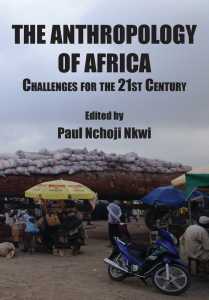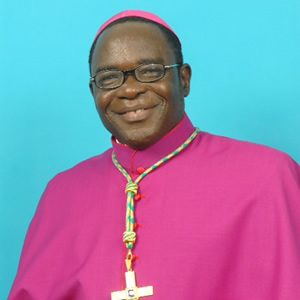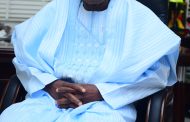By Okello Oculi
Reading the interview Bishop Hassan Kukah gave to Africa Confidential – and reprinted in Intervention online recently, – one gets a sense of his intellectual solitude in the business of dissecting cultural watering wells of ‘’ethnic’’ groups as they dance on the stage of Nigerian politics. The respect he has for the power and historical dignity of the cultural roots of political actors is clear and strong; even though often frustrating.
His solitude recalls for me the hostility expressed by young academics in the Department of Political Science at Ahmadu Bello University when a course titled “Introduction to African Politics’’ put on the agenda political ideologies and structures invented and practiced by Seifawa Borno, pre-Jihad Kano, the Tiv/Igbo communities, the Nuer and Bunyoro-Kitara. Their protest was hosted by the acidic and condescending question: ‘’Are we now a Department of Anthropology?’’.


Bishop Mathew Hassan Kukah

That question ignored the simple view that political management of societies in Nigeria existed for centuries before British colonial rule rudely intruded into their affairs. Professor Wole Soyinka expressed this view by tagging colonial rule as a ‘’mere incident’’ or an interlude. Their initial hostility was cooled a little by cheeky propositions that Lord Lugard had NOT invented the so-called ‘’Indirect Rule’’ system but merely borrowed it from Ancient Borno; and that ‘’Warrant Chiefs’’ were tools for British subversion of Igbo mechanisms for ensuring democratic accountability and the prevention of dictatorship.
Bishop Kukah sustains the relevance of informal cultural demands of accountability. He is yet to provoke that group of formal and community-based anthropologists to join him in intensive discourses about the adaptation of ancient cultural ideologies for the management of modern economies and political processes; including the participation of local groups in parliamentary politics.
This matter is given valuable interest by the regular attention that is paid to the miracle of governance which Lee Kuan Yew and his cohort of leaders carried out in Singapore. What is often ignored in the adulation they earn is what that group of Singaporean intellectuals learnt from Japanese extraction of tools of modern administration from ancient anthropological resources of their country. Their social engineering – from 1868 to date – survived vigorous disruptions by American colonial rule after Japan’s defeat in World War 2.
We can illustrate this with Japanese Buddhist cultural dictation that the work man does is a moment of worship to God. To earn God’s blessing, a furniture maker must inject her/his talents to their ultimate excellence so that each chair or table made is a mark of excellent craftsmanship. Such excellence must be carried with humility and in collective performance with other co-workers. The durability which Toyota or Honda vehicles have earned from these principles has won them millions of customers worldwide.
The value of collective work was illustrated by urging Japanese people to save their incomes in the Post Office which offers an interest rate as low as o.1 per cent. The vast sums so collected are loaned out to private firms also at a similar low rate of interest. However, the Central Bank, the Bank of Commerce and Industry, and the Ministry of Trade send officials to attend daily meetings of management teams of companies given loans. This ensures that public funds are not defrauded or poorly administered. The interest of the collective is devoutly protected by government officials. American and European Union leaders have protested against this practice of Japanese financial management for promoting growth by private companies/corporations.
Bishop Kukah should be urged to find his tribe of anthropologists so that they can excavate and adapt ancient ethnic principles to be used for achieving good governance and the promotion of collective security and development. As an example, the individual productivity by separate mounds of yam that the Tiv have used reflect social relations built on trained readiness to fight against insult to a person. That ‘’balanced antagonism’’ is policed by youths given the obligation to publicly put to shame a person who is injuring the community’s welfare. The Yoruba and Jukun people hold a principle which the late Professor Ali Mazrui openly celebrated, namely: that the king must drink a poison served to him by a group of community elders because he had become a tyrant and injurious to a community’s welfare. This was the rare principle of ‘’constitutionally sanctioned regicide’’ which existed only in African political thought. Bishop Kukah might be urged to interrogate the utility of these principles for buttressing the new Buharian code of ‘’Change begins with me’’.
A Korean cultural attaché could be expected to advice Korean exporters to exploit the potential of a Nigerian cultural dictum of achieving maximum personal success among Nigerians for entering the country’s oil economy. Currently, the burden for Nigeria’s anthropologists is how to channel this principle into industrial creativity; patriotism; national-productivity, and conquering overseas markets.
Professor Oculi is the Executive Director of Africa Vision 525, Abuja – Nigeria




























